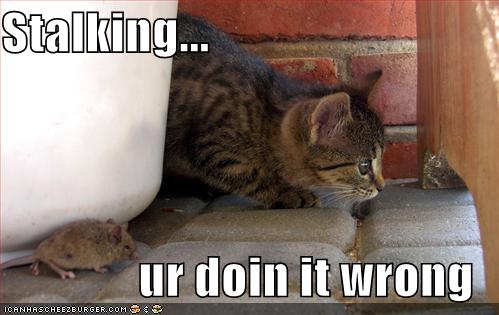Superman had Clark Kent
 I have what I call a “Superman” complex, thinking that I can do it all and do it well and effortlessly. No matter what the task big or small, he can swoop in and handle the situation. I can attend every meeting give insightful input, acquire and manage clients, hire and manage vendors, hire and manage employees, deal with the everyday fires that come with being a driven professional. Be a great dad, a good husband, provide for my family, be financially stable, manage my credit, plan for retirement, workout six times a week, be a good son and brother, live up to all the expectations that you’ve set for yourself and people have set for you.
I have what I call a “Superman” complex, thinking that I can do it all and do it well and effortlessly. No matter what the task big or small, he can swoop in and handle the situation. I can attend every meeting give insightful input, acquire and manage clients, hire and manage vendors, hire and manage employees, deal with the everyday fires that come with being a driven professional. Be a great dad, a good husband, provide for my family, be financially stable, manage my credit, plan for retirement, workout six times a week, be a good son and brother, live up to all the expectations that you’ve set for yourself and people have set for you.
Are you exhausted from reading that list of responsibilities? How do you think it feels to live it! This is what myself and countless of other driven professionals and entrepreneurs (whether you're a manager in charge of building and maintaining a team, a small business owner working hard towards success, or someone trying to get your first professional endeavor off the ground) face and experience everyday. Managing and maintaining this life could easily lead to feeling what’s commonly referred to as “Burnout”.
Feeling like you have so much stress and dealing with so many different situations on so many different levels that you have nothing else to give, you can’t and aren’t interested in moving forward. You’ve succumbed to the burden of this task of being the ultimate professional/ business owner and it’s swallowing you whole. Take a breath relax and know that it’s a common occurrence amongst people in all walks of life, and just like most other things if you’re prepared and know how to deal with burnout it can be an experience that you learn from and can enrich your professional and personal life. In this post we’ll define burnout, its symptoms, its causes and coping strategies for burnout while focusing primarily in the context of professionals and entrepreneurs in a working environment.
Burnout is a state of emotional, mental, and physical exhaustion caused by excessive and prolonged stress. It occurs when you feel overwhelmed and unable to meet constant demands. As the feeling continues, you begin to lose the interest or motivation that led you to take on a certain role in the first place. Excessive and prolonged stress in work environments is as common as the gossip by the watercooler, especially for those in an organization who have a high level of responsibility.
C Suite Execs, Business owners and High level managers are especially susceptible to burnout in the workplace. These individuals usually are responsible for duties that directly affect the success or lack thereof of the company. Just the burden of that responsibility is enough to cause strain, but the day to day duties cause the burnout. You’re managing a key account and the client has indicated there not happy and may be looking to jump ship. You’ve aquired a new piece of business that is good for the company but means you work longer days and weekends, it’s the end of the qtr. and revenues are significantly short of projections and budgets have to be cut. Personal issues like illness or death in the family causes poor performance at work. You’ve made a bad decision (which we all do) and it’s going to cost you professionally and maybe even personally. You’ve been working real hard to show your a valuable asset to the company and was still passed over for that new position. These stressful situations that often occur in the workplace can all lead to burnout.
Here are other cause of burnout in the professional environment :
- Feeling like you have little or no control over your work
- Lack of recognition or rewards for good work
- Unclear or overly demanding job expectations
- Doing work that’s monotonous or unchallenging
- Working in a chaotic or high-pressure environment
- Working too much, without enough time for relaxing and socializing
- Being expected to be too many things to too many people
- Taking on too many responsibilities, without enough help from others
- Not getting enough sleep
- Lack of close, supportive relationships
- Perfectionistic tendencies; nothing is ever good enough
- Pessimistic view of yourself and the world
- The need to be in control; reluctance to delegate to others
- High-achieving, Type A personality
Superman is Superman. he’s busy saving lives and putting out fires he doesn’t have time to assess his own emotional status and how he’s feeling! So how do you as the professional/entrepreneurial version of Superman self-asses when you are or may be approaching burnout. Here are symptoms of burnout in a professional environment:
- Feeling tired and drained most of the time
- Lowered immunity, feeling sick a lot
- Frequent headaches, back pain, muscle aches
- Change in appetite or sleep habits
- Sense of failure and self-doubt
- Feeling helpless, trapped, and defeated
- Detachment, feeling alone in the world
- Loss of motivation
- Increasingly cynical and negative outlook
- Decreased satisfaction and sense of accomplishment
- Withdrawing from responsibilities
- Isolating yourself from others
- Procrastinating, taking longer to get things done
- Using food, drugs, or alcohol to cope
- Taking out your frustrations on others
- Skipping work or coming in late and leaving early
One thing to remember is that burnout doesn’t happen overnight, it’s a gradual process but can overcome you if you’re not paying attention to the symptoms and if you’re not prepared to deal with it. The symptoms are very mild at first but can get worse with time if they go untreated.
Have I scared you yet? No worries, remember if you actively address the issue of burnout in the workplace it’s something that you can manage, overcome, learn from and be a better person and professional. It sounds cliche but admitting you have a problem is the first step once you’ve done that there other pit stops on the road to recovery. Some tips to overcome burnout at work are:
- Actively address problems. Take a proactive approach rather than a passive one to issues in your workplace, You’ll feel less helpless if you assert yourself and express your needs. If you don’t have the authority or resources to solve the problem, talk to a superior.
- Clarify your job description. Ask your boss for an updated description of your job duties and responsibilities. Point out things you’re expected to do that are not part of your job description and gain a little leverage by showing that you’ve been putting in work over and above the parameters of your job.
- Ask for new duties. If you’ve been doing the exact same work for a long time, ask to try something new: a different grade level, a different sales territory, a different machine.
- Take time off. If burnout seems inevitable, take a complete break from work. Go on vacation, use up your sick days, ask for a temporary leave-of-absence anything to remove yourself from the situation. Use the time away to recharge your batteries and take perspective.
Superman had a getaway: it was called Clark Kent, that’s how he avoided burnout. I’m on a journey to find my Clark Kent, hope these tips can help you find yours.
Share this
You May Also Like
These Related Stories

Your Business Will

Pleasantly Stalking



